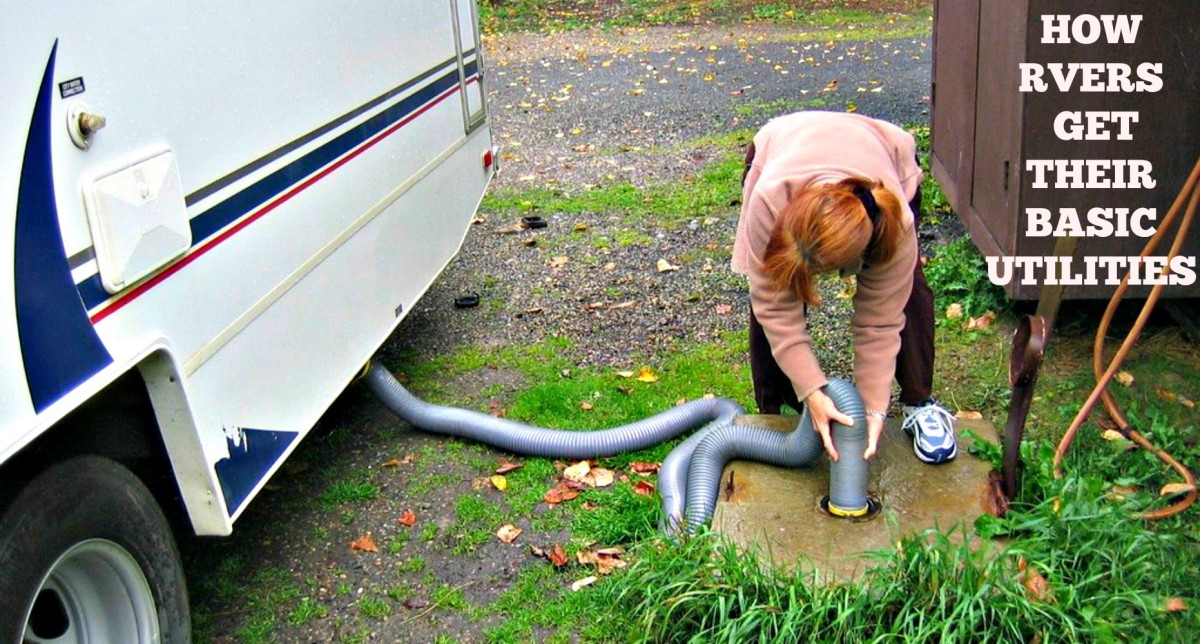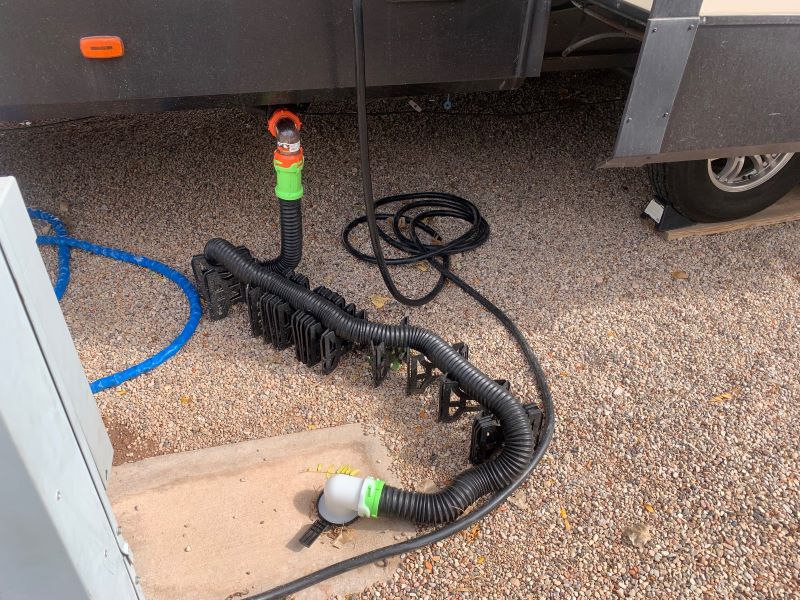Travel trailer off grid living – Travel trailer off-grid living represents a growing trend, offering adventurers and minimalists a unique lifestyle blending freedom and self-sufficiency. This comprehensive guide delves into the practicalities, challenges, and rewards of embracing this unconventional way of life, from selecting the right trailer and setting up essential systems to navigating legal considerations and budgeting effectively. We’ll explore the various types of off-grid-ready trailers, essential systems for water, power, and waste management, and offer practical tips for maintaining comfort and safety in remote locations.
This exploration will cover everything from choosing the ideal off-grid travel trailer to mastering essential systems, navigating legal requirements, and creating a sustainable budget. We’ll examine the daily routines, environmental impact, and practical strategies for a comfortable and safe off-grid experience. The journey into off-grid living begins with careful planning and preparation, ensuring a seamless transition into this unique and rewarding lifestyle.
Types of Off-Grid Travel Trailers: Travel Trailer Off Grid Living
The world of off-grid travel trailers offers a diverse range of options, each designed to meet specific needs and preferences. Choosing the right trailer depends heavily on factors like budget, desired level of comfort, and the type of terrain you plan to traverse. This section explores the various types available, highlighting their strengths and weaknesses for off-grid living.
Teardrop Trailers
Compact and aerodynamic, teardrop trailers are ideal for solo adventurers or couples seeking minimalist off-grid living. Their small size makes them easy to tow, while their lightweight design allows for travel on less-maintained roads. However, their limited space restricts storage and living comfort.
Truck Camper Trailers
Truck campers are mounted directly onto a pickup truck bed, offering a unique blend of mobility and living space. They provide more interior space compared to teardrops, often incorporating features like a small kitchen, sleeping area, and sometimes even a bathroom. The trade-off is a higher initial investment and the need for a suitable truck.
Small to Medium-Sized Travel Trailers
These trailers strike a balance between size and functionality, offering more living space than teardrops but remaining relatively easy to tow. Many models incorporate off-grid features like solar panels, water tanks, and composting toilets. Their increased size, however, means a higher price tag and potentially more challenging maneuvering in tight spaces.
Large Travel Trailers
For those prioritizing comfort and ample space, large travel trailers offer a luxurious off-grid experience. These trailers can include multiple sleeping areas, full kitchens, bathrooms, and extensive storage. However, their significant weight and size require a powerful tow vehicle and limit access to remote locations.
Travel trailer off-grid living offers a unique blend of mobility and self-sufficiency. For those seeking complete independence, mastering the art of off grid living self sufficient is crucial. Successfully achieving this translates directly to maximizing the potential of a travel trailer lifestyle, ensuring comfortable and sustainable adventures far from the grid.
Comparison of Off-Grid Travel Trailer Models
| Model | Weight (approx.) | Water Capacity (approx.) | Power System | Price Range (USD) |
|---|---|---|---|---|
| Taxa Outdoors Cricket | 1,350 lbs | 30 gallons | Solar, battery | $20,000 – $30,000 |
| Escape Traveler | 2,900 lbs | 40 gallons | Solar, generator optional | $30,000 – $45,000 |
| NuCamp TAB 400 | 2,800 lbs | 30 gallons | Solar, battery | $25,000 – $35,000 |
| Airstream Basecamp | 3,500 lbs | Variable | Solar, generator optional | $40,000 – $60,000 |
Essential Off-Grid Systems
Successful off-grid living hinges on the reliability and efficiency of several key systems. These systems work in concert to provide essential resources while minimizing environmental impact. This section will delve into the critical aspects of water management, power generation, and waste disposal.
Water Management Systems
A robust water system is paramount for off-grid living. This includes ample storage capacity, effective filtration to ensure potable water, and water-wise practices to extend the lifespan of your supply. Consider features such as tankless water heaters to conserve water and energy.
Power Generation Options
Reliable power is crucial for lighting, cooking, and running other essential appliances. Several options exist, each with its advantages and disadvantages. Solar panels offer a clean, renewable energy source, while generators provide a reliable backup but rely on fossil fuels. Battery banks are essential for storing energy from solar panels or generators.
| Power Source | Advantages | Disadvantages | Cost (approx.) |
|---|---|---|---|
| Solar Panels | Renewable, clean energy | Dependent on sunlight, initial investment | $1,000 – $5,000+ |
| Generator | Reliable, consistent power | Noise pollution, fuel consumption | $500 – $3,000+ |
| Battery Bank | Energy storage | Requires charging, limited capacity | $500 – $2,000+ |
Waste Management Solutions
Responsible waste management is crucial for minimizing environmental impact. Composting toilets offer an eco-friendly alternative to traditional toilets, while greywater systems recycle wastewater from sinks and showers for non-potable uses like irrigation. Proper trash disposal is also essential, often involving carrying waste out to designated disposal sites.
Living in an Off-Grid Travel Trailer
Embracing off-grid living in a travel trailer involves a shift in lifestyle and daily routines. This section explores the practicalities of this unique lifestyle, focusing on adapting to resource limitations and minimizing environmental impact.
Daily Routines and Lifestyle Adjustments
Daily routines in an off-grid travel trailer often revolve around conserving resources. This includes mindful water usage, efficient energy consumption, and careful planning of meals to minimize waste. Adaptability and resourcefulness are key to a successful off-grid experience.
Minimizing Environmental Impact
Off-grid living doesn’t have to mean a high environmental footprint. Strategies like using biodegradable soaps, minimizing water consumption, and properly disposing of waste are crucial. Choosing eco-friendly products and practices can significantly reduce your impact on the environment.
Maintaining Comfort and Safety

Source: hubstatic.com
Maintaining comfort and safety involves proactive measures. This includes having backup power sources, ample water storage, and a well-stocked first-aid kit. Regular maintenance checks on your trailer’s systems are essential to prevent breakdowns and ensure a safe and comfortable living experience.
Off-Grid Locations and Regulations
Finding suitable locations for off-grid living requires careful consideration of accessibility, resource availability, and local regulations. This section explores the legal and practical aspects of finding and accessing suitable off-grid camping spots.
Suitable Locations for Off-Grid Living
Ideal locations offer a balance of accessibility, natural resources, and legal permissibility. Factors to consider include proximity to water sources, suitable terrain for parking, and the availability of cell service (if desired). Researching potential locations beforehand is essential.
Legal Aspects and Regulations
Regulations regarding off-grid living vary significantly by region. Some areas may require land use permits or have restrictions on the duration of stays. Understanding and adhering to local regulations is crucial to avoid legal issues.
Resources for Finding Off-Grid Camping Locations
- Bureau of Land Management (BLM) websites
- National Forest Service websites
- State park websites
- Online camping directories (e.g., The Dyrt, Campendium)
- Local off-grid communities and forums
Essential Equipment and Supplies
A comprehensive checklist of essential equipment and supplies is crucial for successful off-grid living. This section provides a categorized list of items to ensure comfort, safety, and functionality in a remote setting.
Essential Equipment Checklist

Source: rvblogger.com
This checklist is divided into categories for easier organization and planning:
- Cooking: Portable stove, cookware, utensils, food storage containers, cooler
- Water: Water tanks, water filter, water purification tablets, water hoses
- Power: Solar panels, battery bank, generator (optional), inverter, charging cables
- Sanitation: Composting toilet, toilet paper, biodegradable soap, greywater system
- Safety: First-aid kit, fire extinguisher, emergency communication devices
- Tools and Repair: Basic hand tools, tire repair kit, electrical tape, duct tape
Budgeting and Financial Considerations
Off-grid living requires careful financial planning. This section explores the various costs involved, financing options, and potential income-generating opportunities.
Creating a Realistic Budget
A realistic budget should encompass the initial investment in the travel trailer and essential equipment, ongoing maintenance costs, operational expenses (fuel, water, etc.), and contingency funds for unexpected repairs. Researching prices beforehand is vital for accurate budgeting.
Financing Options
Financing options for purchasing an off-grid travel trailer can include personal loans, RV loans, or home equity loans. Carefully compare interest rates and terms to find the most suitable option.
Income-Generating Opportunities
Several income-generating opportunities exist for those living off-grid, such as freelance work, remote jobs, or selling handcrafted goods. These opportunities can supplement income and help offset the costs of off-grid living.
Visual Guide to Off-Grid Trailer Setup
Setting up an off-grid travel trailer in a remote location requires a systematic approach. This section provides a step-by-step guide to ensure a safe and efficient setup.
Step-by-Step Setup Guide, Travel trailer off grid living
- Site Selection: Visualize a flat, level area with good access to sunlight for solar panels, and a suitable distance from water sources and other potential hazards. Consider wind direction and potential for flooding.
- Leveling: Imagine using leveling blocks or ramps to ensure the trailer is perfectly level. This prevents issues with water drainage and appliance function. Observe the terrain carefully to determine the necessary leveling adjustments.
- System Connection: Picture connecting solar panels to the battery bank, ensuring proper wiring and connections. Visualize connecting water hoses to tanks and faucets. Confirm all connections are secure and leak-free.
- Waste Management Setup: Envision setting up the composting toilet and greywater system according to manufacturer instructions. Ensure proper ventilation for the composting toilet and appropriate drainage for the greywater system. Visualize a designated area for trash storage.
- Final Checks: Imagine a final walk-through to ensure all systems are operational and secure. Check water levels, power levels, and the overall stability of the trailer. Visually inspect for any potential issues before settling in.
Final Thoughts
Embarking on the journey of travel trailer off-grid living requires meticulous planning, resourcefulness, and a spirit of adventure. While challenges exist, the rewards—freedom, self-reliance, and a closer connection with nature—are undeniable. By carefully considering the factors Artikeld in this guide, prospective off-grid adventurers can confidently navigate the complexities of this lifestyle and create a truly fulfilling and sustainable existence on the open road.
